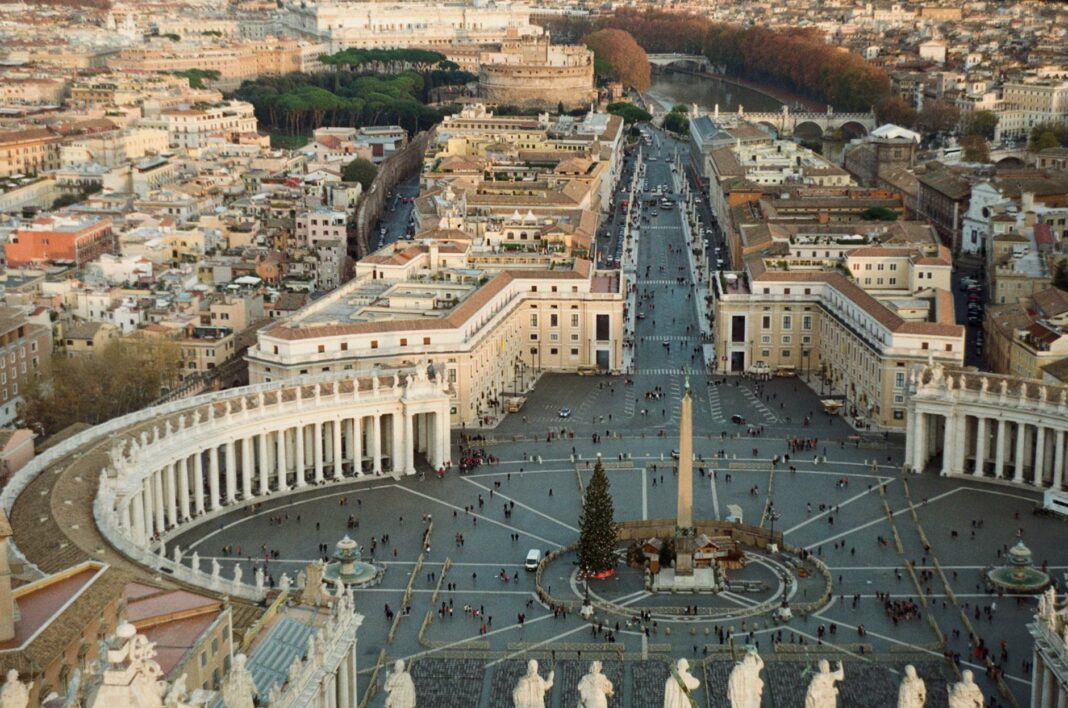Have you ever considered that a pilgrimage might hold the power to change the very fabric of your life? Many individuals setting out on spiritual journeys return transformed, equipped with new perspectives and a revived sense of purpose. Pilgrimages are about so much more than simply visiting sacred sites; they serve as catalysts for change, self-discovery, and profound personal growth. Whether walking the Camino de Santiago in Spain, exploring the ancient paths leading to Mecca, or venturing to India for a spiritual retreat, each step taken on these journeys offers an opportunity for enlightenment, healing, and renewal.
This blog post delves into the transformative potential of pilgrimage experiences, exploring their cultural significance, emotional impact, and lasting effects on individuals’ perceptions of themselves and the world around them. We’ll break down various aspects of these incredible journeys, emphasizing how they can instigate lasting changes that ripple into various aspects of life. Join the exploration into the compelling question: Can a pilgrimage truly change your life forever?
Table of Contents
- What is a Pilgrimage?
- Historical Significance of Pilgrimages
- The Emotional Journey
- Spiritual Growth Through Pilgrimage
- Lasting Impact of Pilgrimages
- Final Thoughts on Transformation
What is a Pilgrimage?
A pilgrimage is far more than just a travelogue; it’s an intimate adventure that weaves together the threads of spirituality, culture, and personal reflection. Each individual embarks on a pilgrimage to engage intimately with their values, beliefs, and ultimate purpose. This journey often involves visiting sacred sites, experiencing unique traditions, and engaging with fellow participants who share similar quests for meaning. These meaningful experiences provide a framework for reflection, encouraging deep contemplation on life choices, beliefs, and personal relationships. Far from the hustle and bustle of everyday life, pilgrims can engage with the world in a way that brings clarity and insight.
Historical Significance of Pilgrimages
Throughout history, untold numbers of people have felt compelled to undertake pilgrimages, influenced by deep cultural and spiritual traditions. From the ancient Greeks worshipping at Delphi to the Christians tracing the footsteps of saints, these journeys have shaped civilizations and religions. Historically, these sacred journeys were a means to connect with the divine, seek forgiveness, or fulfill a sense of duty. Even today, the historical narratives surrounding renowned pilgrimage sites resonate strongly with modern travelers, providing context, depth, and perspective. Understanding the tapestry of past pilgrimages enriches the contemporary experience, offering insights and connection to those who have walked similar paths before us.
The Emotional Journey
The road taken during a pilgrimage is not simply geographic but profoundly emotional as well. Traveling through diverse landscapes and encountering varied cultures leads to a rich emotional tapestry of experiences. Each step taken inspires reflection, bringing joy, sorrow, vulnerability, and ultimately resilience. Emotions often bubble to the surface as pilgrims confront personal challenges, share stories with fellow travelers, and connect with the landscapes they traverse. This emotional richness can be both cathartic and exhilarating, allowing individuals to face their innermost selves. It is during these intense emotional experiences that many arrive at newfound clarity—emotions that might have remained buried in the chaos of daily life are unearthed, leading to transformative insights.
Spiritual Growth Through Pilgrimage
A pilgrimage acts as a spiritual odyssey for many, a profound opportunity for growth and renewal. As participants engage with sacred sites, prayers, and rituals, they often experience heightened levels of spirituality. This journey can lead to a deeper understanding of personal beliefs and a stronger connection to the divine. Many pilgrims report a sense of being guided or supported during their travels, unlocking doors of faith and awakening aspects of spirituality that may have lain dormant. These moments of divine connection can bring an abundance of insight, love, and acceptance, dissolving doubts and fears previously held dear. The spiritual growth experienced on these journeys often leads individuals to carry the transformation back into everyday lives, resulting in a more connected existence.
Lasting Impact of Pilgrimages
The effects of a pilgrimage extend far beyond the completion of the journey itself. The moments of enlightenment gained, valuable lessons learned, and profound experiences encountered often manifest in lasting shifts in perspective and belief. Many individuals find themselves reassessing priorities, cultivating new relationships, or adopting healthier habits as a direct consequence of their journey. Whether it’s increased compassion, a deeper appreciation for nature, or a renewed commitment to personal goals, these inner transformations ripple outward, influencing various areas of life. Friends, families, and communities may feel the impact of the pilgrimage, as transformed individuals often share their newfound wisdom and insights.
Final Thoughts on Transformation
What if the journey you are considering—one that takes you beyond your comfort zone—could be the very catalyst for radical change? The process of embarking on a pilgrimage invites the possibility of profound transformation. As people navigate physical challenges, embrace spiritual experiences, and uncover emotional layers, they can emerge into the world with renewed vitality, purpose, and insight. The timeless nature of pilgrimage ensures that this ancient practice remains relevant, continually inviting seekers to explore life’s deeper meanings. Each journey is a chapter waiting to be written, with the potential to lead to an entirely new narrative.
Frequently Asked Questions
Can anyone go on a pilgrimage?
Absolutely! Pilgrimages can be pursued by anyone who has a desire for self-discovery and spiritual growth, regardless of religious affiliation. The roads are open to all seekers.
What should I prepare for when planning a pilgrimage?
Preparation varies depending on the pilgrimage chosen. Physical training, mental readiness, and research regarding the route, accommodations, and cultural practices are essential for a meaningful experience. This level of preparation will ensure that you are fully engaged and ready to embrace the journey.
How does a pilgrimage affect mental health?
Pilgrimages can significantly enhance mental health, promoting mindfulness, lowering stress levels, and instilling a sense of purpose. The opportunity to disconnect from daily life and immerse oneself in new experiences can provide vital rejuvenation for the mind and spirit.
Are there any specific rituals associated with pilgrimages?
Different cultures and religions have unique rituals relating to their pilgrimages, from prayer and meditation to communal gatherings and ceremonial practices. Engaging in these rituals can enrich the experience and create a sense of connection to a larger community.
Image Credit: Pexels





